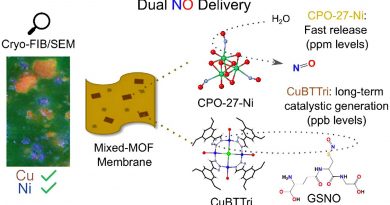Tobacco companies minting it before Wednesday’s UK menthol cigarette ban

Menthol cigarettes will be removed from shelves in the UK this Wednesday (20 May 2020), yet new research has found that tobacco companies failed to use the four-year phasing-in period (from 2016) to prepare for this week’s ban. Instead they continued to sell and promote menthol products and to develop new products which circumvent the ban.
The University of Bath researchers behind the study—which is out today (Monday 18 May 0001 GMT) in the BMJ’s Tobacco Control – argue this highlights how tobacco companies have exploited a delay in the ban to develop new products, keeping menthol products on the market for as long as possible, rather than phasing them out.
A menthol ban was first agreed in 2014 and originally due to be implemented in 2016, alongside accompanying measures such as standardised packaging. However, after intense lobbying, its implementation was put back four years, until this week when it will be implemented in the midst of Covid-19.
For the new study, the researchers from the Tobacco Control Research Group analysed industry analyst data to track menthol market cigarette share from legislation agreement through to 2018. They also analysed documentary evidence—industry documents, websites and retail publications—to understand tobacco industry activities.
Their results show that during the grace period the tobacco industry was given to prepare, the UK market share of menthol cigarettes grew rapidly from 14% of cigarette sales in 2014 to over a fifth (21%) in 2018.
With one in six menthol smokers stating they would quit after the menthol ban, an impact which potentially could reduce UK cigarette sales overall by 3%, the researchers say the menthol ban will be an important driver in the fight against deaths and illness from cigarette smoking.
Dr. Rosemary Hiscock, lead author, explains: “Our findings suggest the tobacco industry was driving sales of menthol cigarettes right up to the ban—a product whose serious health implications had led to the ban in the first place.”
In the paper, the authors argue that the tobacco industry used the delay to develop and introduce new menthol products that will circumvent the ban once it is implemented: menthol filters and flavour cards which smokers can add to cigarette packs or roll-your-own tobacco pouches to make them minty.
Due to a loophole in the tobacco display ban legislation, these accessories, unlike cigarettes, can be promoted to customers near the cash till in England and Wales (but not Scotland).
They also find that two tobacco companies have introduced cigarette-like ‘cigarillos’ (small cigars) with a flavour capsule. Although cigarillos have a small market share of UK tobacco sales at the moment, Euromonitor forecasts that this market will grow, not least because they are subject to lower taxes than cigarettes and are mostly exempt from plain packaging legislation.
Dr. Hiscock added: “We recommend loopholes in legislation be closed as soon as possible to prevent tobacco companies undermining the intended public health impacts of the legislation. This includes preventing the display of tobacco accessories and extending the menthol ban to all tobacco products, including cigarillos and heated tobacco products.
“In Canada, the menthol ban stops menthol being used at all, whereas UK legislation only stops menthol’s use as a characterising flavour. Banning menthol’s use would stop menthol masking the harsh effects of smoking when it is present at undetectable levels.”
Finally, the researchers highlight how big tobacco companies have created new websites and sponsored retail industry pieces which effectively undermine the intended public health benefit of the ban. These websites push consumers to switch to other products rather than quitting: a key concern is that they promote new heated tobacco products, such as IQOS, which are still allowed to have a menthol flavour.
Professor Anna Gilmore, Director of the Tobacco Control Research Group, explains: “The way tobacco companies are using the ban on menthol cigarettes to promote new menthol tobacco products which are heated rather than burned undermines the very purpose of this ban. It also flies in the face of tobacco company claims that they wish to reduce the harm from smoking. They realise the menthol ban will trigger smokers to quit. Instead they seek to move the smokers onto new tobacco products which independent evidence indicates are as dangerous as smoking and from which they make even more profit.”
The team conclude that the tobacco industry’s exploitation of the phase-in of the menthol ban repeats what happened during the 12-month phase-in period of standardised packaging, revealed by previous TCRG work. In both cases, tobacco companies misused the phase-in period to find ways to circumvent legislation and to shore up profits at the expense of public health, say the researchers.
The addition of menthol to cigarettes takes away some of the harsh sensations of smoking. Public health experts suggest this can make them more appealing to younger people and could lead them to become more quickly dependent on nicotine in comparison with non-menthol products. A menthol flavour can be added to cigarettes during the manufacturing process or smokers can add it themselves by crushing a menthol capsule.
Source: Read Full Article



